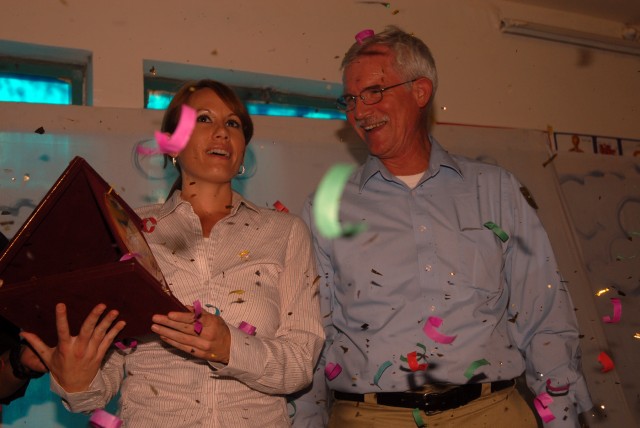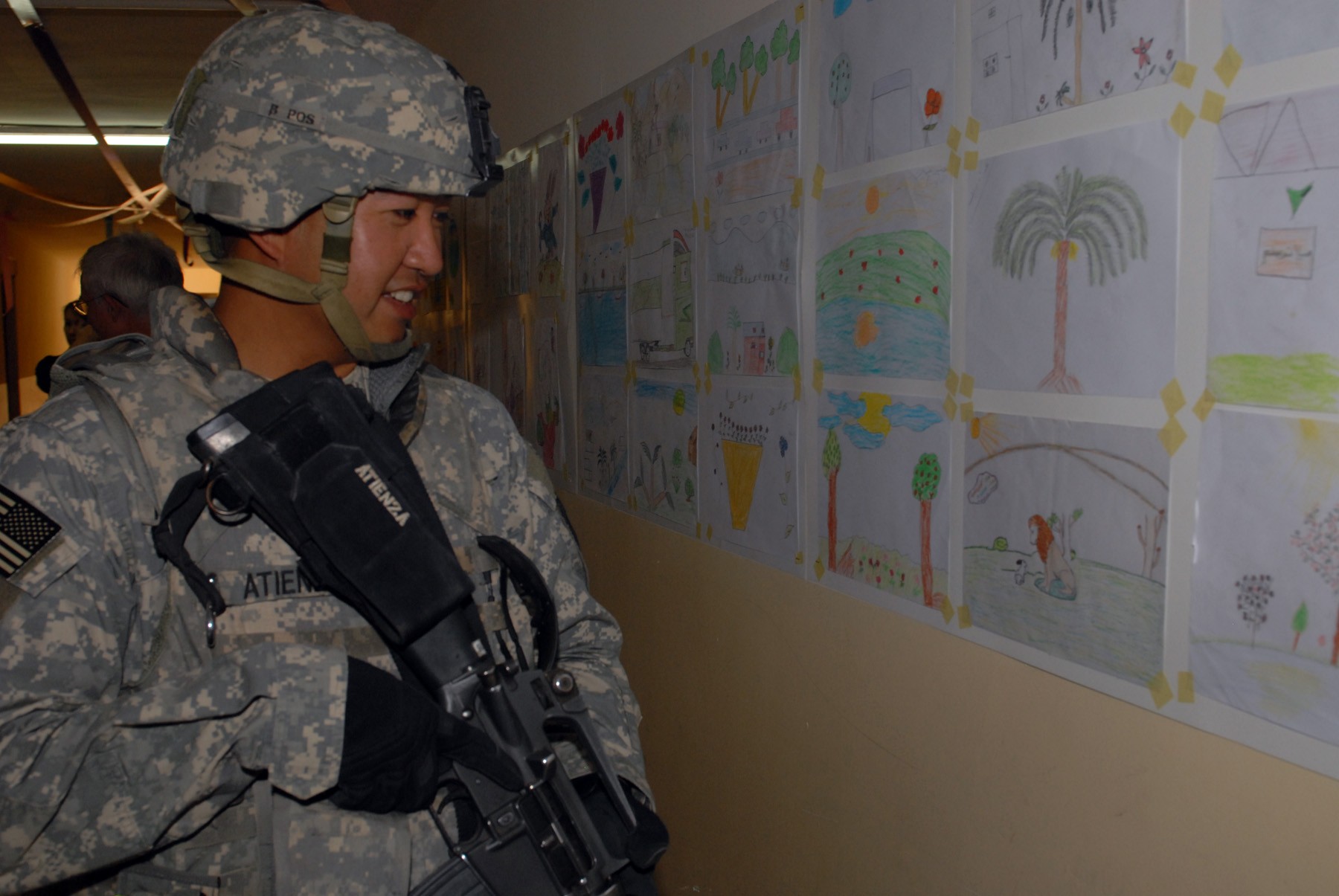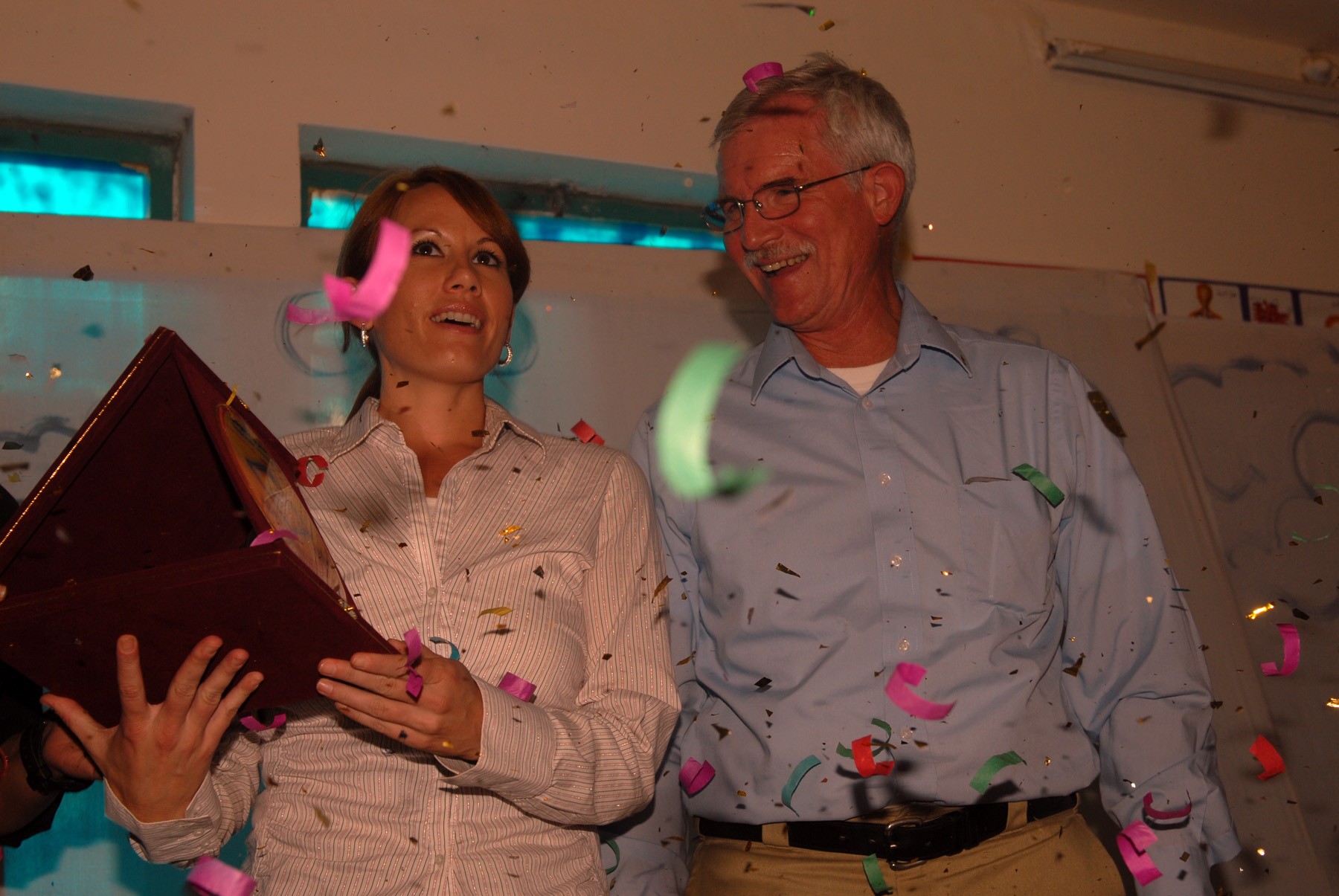BAGHDAD - The future of Iraq was on display at the al-Huda Girls School in Tarmiyah, here, as young girls sang, acted and displayed artwork to celebrate the end of a summer program made possible with help from the U.S. Army and U.S. Department of State.
Officials from the Baghdad embedded Provincial Reconstruction Team North and Soldiers from the Brigade Special Troops Battalion, 1st Brigade Combat Team, 1st Cavalry Division, were honored at the program's grand finale, here, Oct. 22, which gave high-school girls the chance to participate in the performing arts for the first time in their lives.
The school was built as a Commanders Emergency Relief Program, started under the Pennsylvania National Guard's 56th Stryker Brigade Combat Team. The seeds planted by the 56th SBCT were nourished by the 1st BCT, 1st Cav. Div. to help make the summer program possible.
According to Eric Shutler, a member of the ePRT and a representative from the U.S. Agency for International Development, there was good reason to celebrate the summer program as a victory over violence and insurgents.
"This has been a troubled school," said Shutler, a retired Navy fighter pilot. "When it was constructed, it was built with explosives in the walls."
Insurgents' plans to use a school building as a weapon were discovered two years ago and the building was safely demolished by U.S. forces. Today, the year-old school building stands as a modern facility for girls in grades 7-12 in the town of Tarmiyah.
Mary-Denise Tabar of Tampa, Fla., the public diplomacy advisor for the Camp Taji-based ePRT, worked with local leaders and school officials to start the program. An Iraqi non-governmental agency called Nusku also helped.
"We engage the local educators, local councils, key leaders and find out what they need or like," said Tabar.
In the past, girls did not participate in the performing arts in school and the ePRT team met some resistance in the community for a program that allowed girls to engage in the arts. But when the girls watched video tapes of performances by girls in other schools in the Baghdad area, they demanded the same opportunity, according to Tabar.
"These girls in the beginning were not allowed to do drama, music and plays," said Tabar. "But they agitated for [arts education] on their own. Never underestimate the power of upset teenage girls."
The themes of the performances were peace, education, exercising the right to vote, honesty and Iraqi unity. Tabar was the guest of honor and was presented with a portrait and a plaque of appreciation.
"It was very touching considering two years ago, that school was rigged up with explosives," said Tabar. "I think [the students] were the driving force behind the project."
The Soldiers pulling security at the school seemed impressed by the artistic talents of the girls.
"This is awesome. This is the first school I've seen with all the pictures and artwork they have been doing," said 1st Lt. Lacey Rector, of Willoughby, Ohio, a military police platoon leader. "The kids all have smiling faces and the teachers seem happy we are here."
Sgt. Rayman Atienza, walked the halls of the school pulling security, but also took time to admire the paintings and drawings on the walls.
"I'm impressed and I'm happy for the kids around here," said Atienza, a San Diego native.
Tabar said spending money on programs for youth seem to pay the highest dividends in contributing to education and building confidence in young people. The program cost about $87,000.
"I think the money you spend on youth programs gives you more bang for the buck," said Tabar. "Whatever they get, whether its knowledge or self-esteem, they take it and run with it."
Tabar said the entire program was not possible without the help of the 1st Cavalry Division Soldiers.
"Their support was transportation and movement because if we can't get out and meet these officials, we can't do our work," said Tabar.
Another way the Soldiers helped was to find female Soldiers to accompany Tabar on trips to the school. The cultural sensitivity of working with an all-girls school meant that the presence of male Soldiers was discouraged, and could have hindered the program.
"They [1st BCT, 1st Cav. Div.] have been particularly helpful in finding female Soldiers to go with me," said Tabar. "They have been good about trying to find those extra females to ride out with us."
The two months of summer school gave the students at al-Huda Girls School the opportunity to explore artistic talents. If future artists, singers or other achievers contribute to Iraq's future, they may be able to trace their roots to a small school in Tarimyah.




Social Sharing